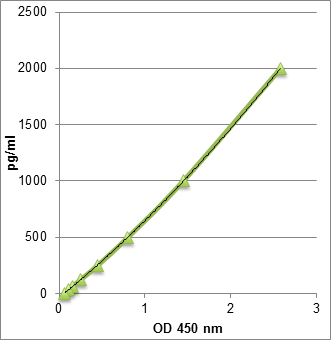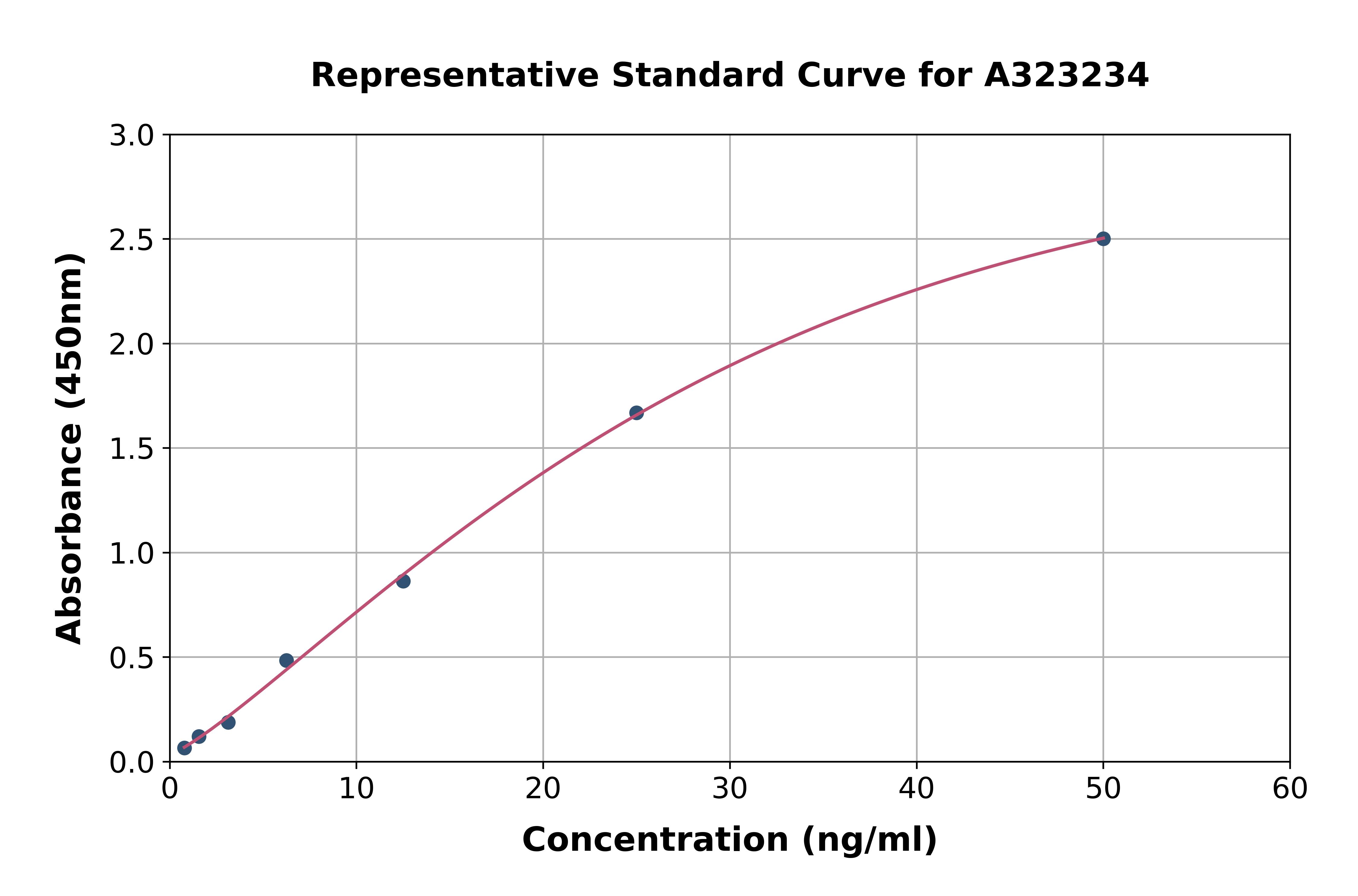
Standard Curve
Periostin (mouse) ELISA Kit
AG-45B-0005
ReactivityMouse
Product group Assays
Overview
- SupplierAdipoGen Life Sciences
- Product NamePeriostin (mouse) ELISA Kit
- Delivery Days Customer10
- ApplicationsELISA
- Assay Detection Range31 to 2000pg/ml
- Assay Sensitivity10pg/ml
- CertificationResearch Use Only
- Protein IDQ62009
- Protein NamePeriostin
- Scientific DescriptionELISA Assay. Detects natural and recombinant mouse periostin. Has been tested on mouse periostin isoform 5 (should also detect mouse isoforms 1, 2 and 3 according to sequences). Mouse isoform 4 has not been tested. Colorimetric assay. Sample Types: Cell Culture Supernatant, Plasma, Serum. Range: 31 to 2000pg/ml. Sensitivity: 10pg/ml. Periostin is a 90-kDa matricellular protein that consists of a typical signal sequence, followed by a cysteine-rich region, an EMI domain (protein-protein interactions), four tandem fasciclin-like domains that are responsible for integrin binding, and a C-terminal region. Periostin was originally isolated as an osteoblast-specific factor that functions as a cell adhesion molecule for pre-osteoblasts and in osteoblast recruitment, attachment and spreading. Periostin is also involved in many fundamental biological processes such as cell proliferation, cell invasion and angiogenesis. Periostin expression is increased by both transforming growth factor beta1 (TGF-beta1) and bone morphogenetic protein 2 (BMP-2). Changes in periostin expression are commonly detected in various cancers and pre-cancerous conditions, and periostin may be involved in regulating cancer cell activities that contribute to tumorigenesis, cancer progression and metastasis. Periostin up-regulation in cancers usually correlates with aggressiveness and/or poor survival. Periostin has shown to be involved in many aspects of allergic inflammation, such as eosinophil recruitment, airway remodeling, development of a Th2 phenotype and increased expression of inflammatory mediators. It is evaluated as a biomarker for bronchial asthma and airway inflammation. - Periostin is a 90-kDa matricellular protein that consists of a typical signal sequence, followed by a cysteine-rich region, an EMI domain (protein-protein interactions), four tandem fasciclin-like domains that are responsible for integrin binding, and a C-terminal region. Periostin was originally isolated as an osteoblast-specific factor that functions as a cell adhesion molecule for pre-osteoblasts and in osteoblast recruitment, attachment and spreading. Periostin is also involved in many fundamental biological processes such as cell proliferation, cell invasion and angiogenesis. Periostin expression is increased by both transforming growth factor beta1 (TGF-beta1) and bone morphogenetic protein 2 (BMP-2). Changes in periostin expression are commonly detected in various cancers and pre-cancerous conditions, and periostin may be involved in regulating cancer cell activities that contribute to tumorigenesis, cancer progression and metastasis. Periostin up-regulation in cancers usually correlates with aggressiveness and/or poor survival. Periostin has shown to be involved in many aspects of allergic inflammation, such as eosinophil recruitment, airway remodeling, development of a Th2 phenotype and increased expression of inflammatory mediators. It is evaluated as a biomarker for bronchial asthma and airway inflammation.
- ReactivityMouse
- Storage Instruction2°C to 8°C
- UNSPSC41116100
- SpeciesMouse



